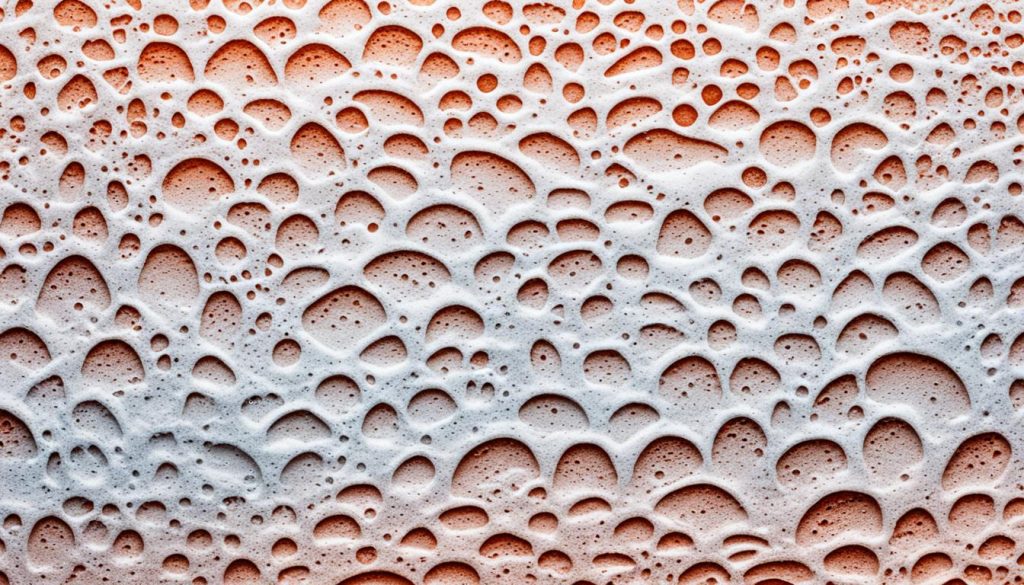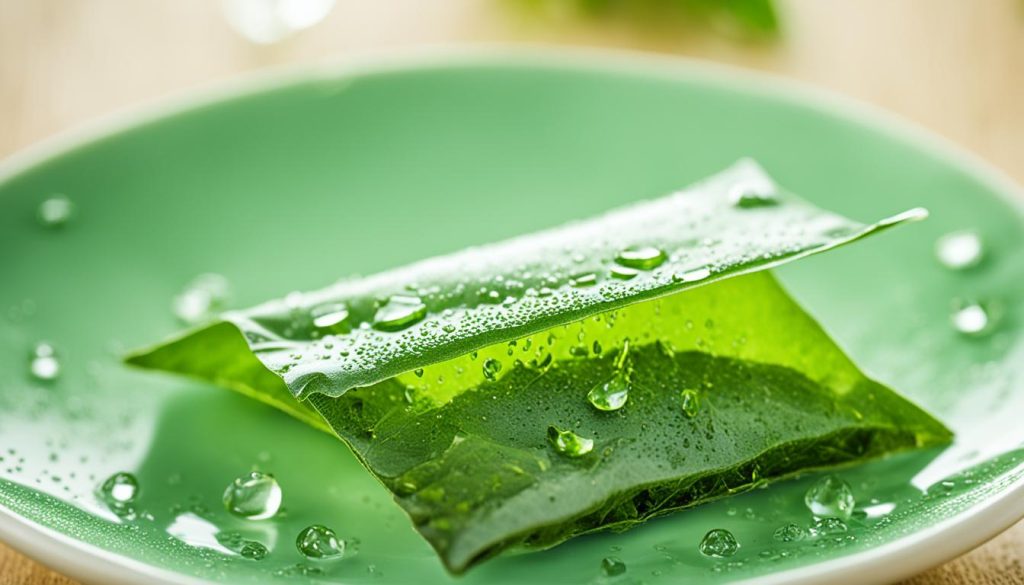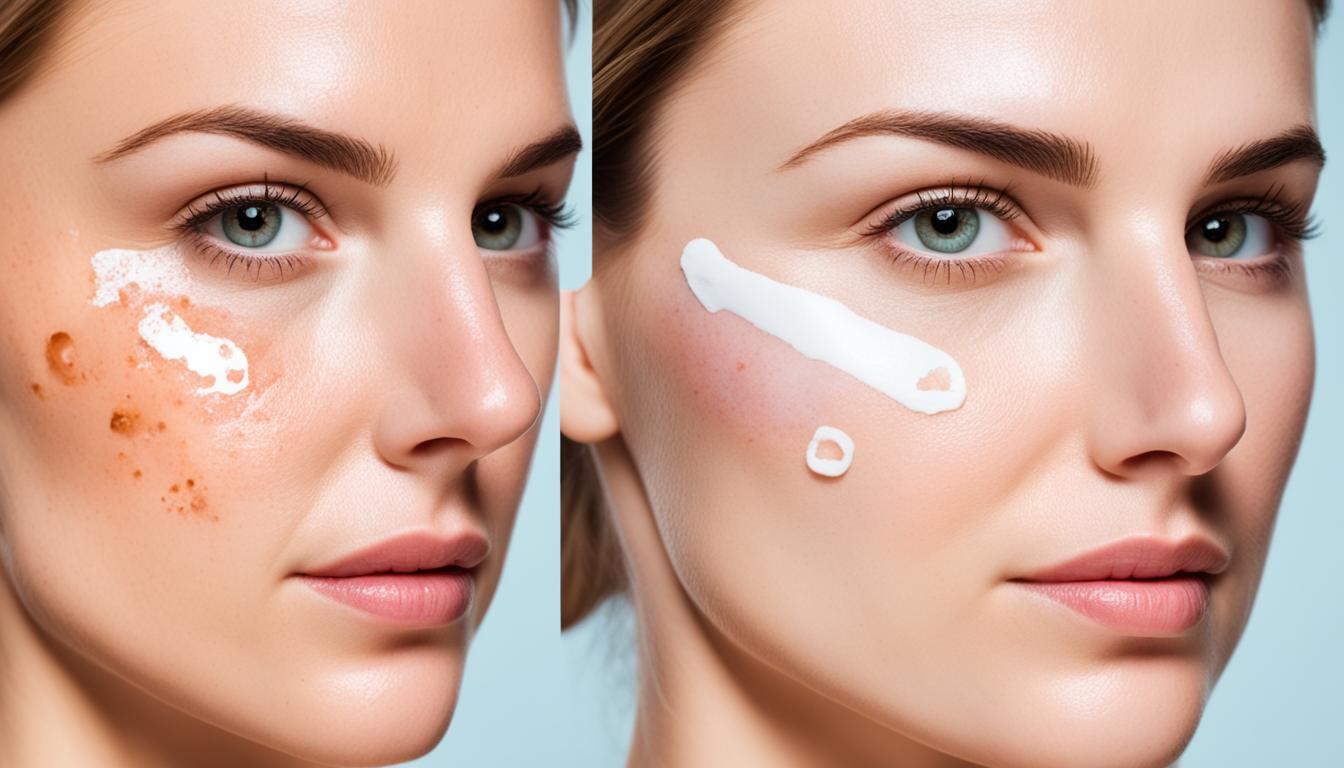Acne scars can be a frustrating reminder of past breakouts. Whether you’re dealing with atrophic scars, hypertrophic scars, or keloid scars, finding an effective acne scar treatment is crucial for achieving smoother, clearer skin. In this article, we’ll explore various skincare options, including natural remedies and medical treatments, to help you tackle acne scars head-on.
Types of Acne Scars
Acne scars can come in various forms, each requiring different approaches for effective treatment. The three main types of acne scars are atrophic scars, hypertrophic scars, and keloid scars.
Atrophic Scars
Atrophic scars are characterized by small indentations in the skin’s surface. They can be further categorized into different subtypes:
- Icepick scars: These scars resemble small pinpricks on the skin, caused by deep, narrow indentations.
- Boxcar scars: Boxcar scars are larger indentations with clear edges, similar to small craters on the skin.
- Rolling scars: Rolling scars have unclear edges and give the skin a rolling or undulating appearance.
Hypertrophic Scars
Hypertrophic scars are raised scars on the skin’s surface and are often the result of excessive collagen production during the healing process. They are typically confined to the original area of the acne lesion and tend to be thicker and more pronounced than atrophic scars.
Keloid Scars
Similar to hypertrophic scars, keloid scars are raised and thicker than the surrounding skin. However, unlike hypertrophic scars, keloid scars extend beyond the boundaries of the original acne lesion and can continue to grow over time.
Understanding the specific type of acne scars you have is crucial in determining the most appropriate treatment options. It’s advisable to consult with a dermatologist who can provide personalized recommendations based on your specific situation and needs.

How to Get Rid of Acne Scars?
Natural Remedies for Acne Scars
Many people use natural remedies to help reduce the appearance of acne scars. Some popular home remedies include:
- Black seed oil: Known for its potential to even out skin pigmentation.
- Rosehip oil: Often used to reduce discoloration and promote skin healing.
- Honey: Aids in wound healing and has moisturizing properties.
- Aloe vera combined with manuka honey: May promote scar-free healing of wounds.
While these natural remedies are commonly used, it’s important to note that their effectiveness may vary from person to person. It’s essential to exercise caution and consult a healthcare professional before trying any home remedies.

Over-the-Counter Treatments for Acne Scars
Over-the-counter treatments offer a convenient and accessible option for individuals looking to reduce the appearance of acne scars. These treatments typically contain active ingredients that can promote skin renewal, reduce inflammation, and improve the texture and appearance of scars. Here are some commonly used over-the-counter treatments for acne scars:
1. Salicylic Acid
Salicylic acid is a beta hydroxy acid (BHA) that helps exfoliate the skin and unclog pores. It can help reduce the appearance of acne scars by promoting new skin cell growth and improving skin texture.
2. Retinoids
Retinoids, such as retinol and adapalene, are derived from vitamin A and can help stimulate collagen production and accelerate skin cell turnover. This can lead to a smoother skin surface and a reduction in the visibility of acne scars.
3. Alpha Hydroxy Acids (AHAs)
Alpha hydroxy acids, including lactic acid, glycolic acid, and citric acid, can help improve the appearance of acne scars by exfoliating the skin and promoting cell turnover. AHAs can also help fade hyperpigmentation and improve skin tone.
4. Silicone Dressings
Silicone dressings are occlusive sheets or gels that create a protective barrier over the scarred skin. They help to flatten and soften the scars, improve hydration, and enhance the overall texture of the skin.
When using over-the-counter treatments for acne scars, it’s important to follow the instructions provided with the product. Results may vary depending on the severity of the scars and individual skin type. If you have any concerns or underlying skin conditions, it’s always advisable to consult a healthcare professional before starting any new treatment.

| Treatment | Active Ingredient | Benefits |
|---|---|---|
| Salicylic Acid | Salicylic acid | Exfoliates the skin, promotes new cell growth |
| Retinoids | Retinol, Adapalene | Stimulates collagen production, accelerates skin cell turnover |
| Alpha Hydroxy Acids | Lactic acid, Glycolic acid, Citric acid | Exfoliates the skin, promotes cell turnover, fades hyperpigmentation |
| Silicone Dressings | Silicone | Flattens and softens scars, improves hydration |
Medical Treatments for Acne Scars
In more severe cases, medical treatments may be necessary to effectively reduce acne scars. Dermatologists can recommend a variety of procedures or combinations of therapies depending on the type and extent of the scarring.
These treatments may include:
- Chemical peels
- Injections of corticosteroids or dermal fillers
- Microneedling
- Laser treatment
- Surgery
Each treatment option has its own benefits and considerations, and it’s important to consult with a dermatologist to determine the most suitable approach for your specific case.
| Treatment | Description |
|---|---|
| Chemical Peels | A chemical solution is applied to the skin, causing it to peel and reveal smoother skin underneath. This treatment helps reduce the appearance of acne scars by promoting skin regeneration. |
| Injections | Corticosteroids or dermal fillers can be injected into acne scars to plump up the skin and reduce their appearance. Corticosteroids help reduce inflammation and flatten raised scars, while dermal fillers fill in depressed scars. |
| Microneedling | A device with fine needles is used to create small punctures in the skin, stimulating collagen production and promoting scar reduction. Microneedling can help improve the texture and appearance of acne scars. |
| Laser Treatment | Laser therapy targets specific areas of the skin to stimulate collagen production and improve the appearance of acne scars. Different types of lasers can be used depending on the type and severity of the scars. |
| Surgery | In some cases, surgical procedures such as punch excision, subcision, or skin grafting may be recommended to treat acne scars. These procedures aim to remove or rearrange scar tissue to improve the skin’s appearance. |
Best Practices for Preventing Acne Scars
While it may not always be possible to prevent acne or scarring, there are measures you can take to reduce the risk of developing acne scars.
- Prompt treatment: Seek prompt treatment for acne when it occurs. By addressing acne early, you can minimize the chances of scarring. Consult a dermatologist for personalized recommendations and a suitable treatment plan.
- Avoid picking or popping acne lesions: It may be tempting to pick or pop acne, but this can worsen inflammation and increase the risk of scarring. Instead, opt for gentle cleansing and use topical treatments as recommended by healthcare professionals.
- Practice good skincare habits: Establishing a consistent skincare routine can help prevent acne and minimize scarring. Cleanse your face twice a day using a gentle, non-comedogenic cleanser. Avoid harsh scrubbing or using abrasive products that can irritate the skin.
- Use sunscreen regularly: Applying sunscreen with a high SPF can limit the contrast between unscarred skin and scars. This can help protect the skin from further damage caused by sun exposure, which may worsen the appearance of acne scars.

Incorporating these best practices into your skincare routine can help in preventing acne scars. Remember, consistency is key, and it’s important to be patient as results may take time to appear.
Conclusion
Acne scars can be a persistent concern for many individuals. Fortunately, there are various treatment options available to help reduce the appearance of acne scars and achieve smoother, clearer skin. Whether you prefer natural remedies, over-the-counter treatments, or medical interventions, there are solutions tailored to different types of acne scars.
When addressing acne scars, it is crucial to consult with a healthcare professional to determine the best treatment approach for your specific needs. Realistic expectations are also important, as reducing acne scars takes time and patience. By consistently following a skincare routine that includes appropriate treatments and practices, you can gradually fade and reduce your acne scars.
Remember, restoring your complexion’s clarity and smoothness is possible. With the right acne scar treatment and a commitment to your skincare journey, you can regain your confidence and enjoy blemish-free skin once again.

